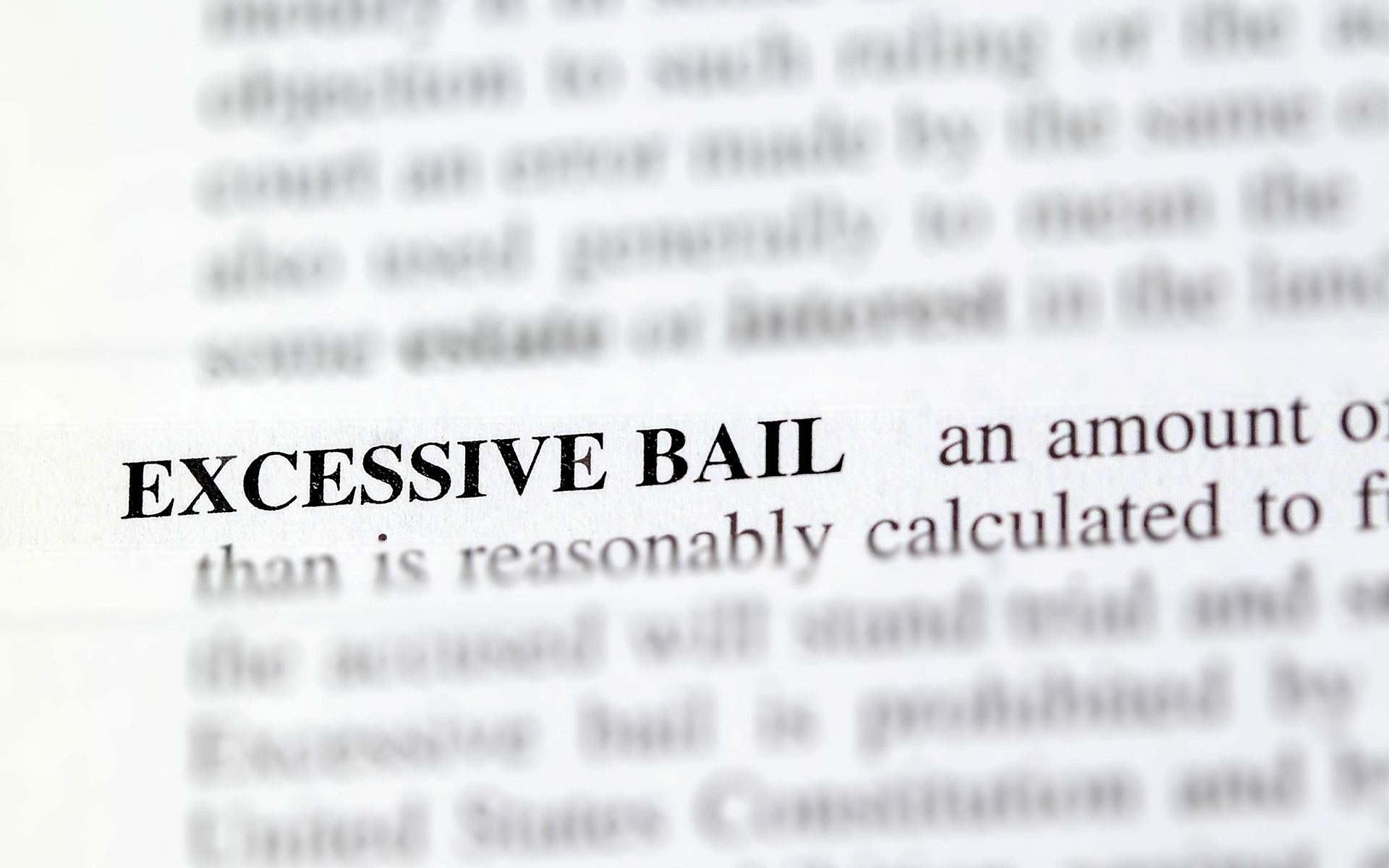
An arrest is stressful and scary, as the unknowns loom before you. However, once the reality sinks in, possibly as you are sitting in a holding cell, you may be wondering what to do next. The answer is the same no matter the crime – contact a criminal defense attorney.
Within 24-48 hours of being arrested in Texas, you will appear before a judge who will inform you of the charges against you, set bail/bond, and give you a court date. The ability to pay the bail is your ticket out of jail until your court date. However, what if the amount is too high?
This is where a bond reduction lawyer is instrumental, as they are the best route to lowering bail in Texas to help you get out of custody as quickly as possible. Learn all about the bail reduction process as we dive into bond reduction caselaw in Texas.
How Do Bond Reductions Work?
First, let’s clarify the difference between bail and bonds, as they are often used interchangeably yet differ in meaning. Bail is the amount of money the court determines must be paid before a defendant can be released from custody until their court date. A bond is the method by which the bail is fulfilled (i.e., paid) and is most often brokered by a third party, like a bail bondsman. So, bonds provide an opportunity to pay the full bail amount when the defendant cannot afford it themselves.
Both serve as financial security for the courts to ensure a defendant will appear for all pretrial and trial hearings, and the courts set this amount after an arrest (often at a high amount to ensure compliance). If the amount cannot be paid, the defendant must remain in custody until their court date. However, rather than simply accepting a lengthy detention while waiting, a defendant can pursue a bond reduction. This process is essential for those who believe their bail is too high based on their circumstances, including their financial situation, the nature of the charges, or their risk of flight.
In sum, a Texas motion for bond reduction is a legal process that allows defendants to request a lower bail amount after it has been set by a judge based on evidence presented to support the request.
How to Get a Bond Reduction in Texas
Given that this is a legal process, it’s best left in the hands of the defendant’s criminal defense attorney. An experienced bond reduction attorney understands what is expected, including how to file a bond reduction letter in Texas and present the defendant’s case in the best possible light before the judge and prosecutors. There are several arguments that can support why a bond amount is unnecessarily high. These typically include demonstrating strong community connections (e.g., family, a job, or home), demonstrating how the defendant is not a flight risk, providing evidence of an ability to pay a lower bond amount, and demonstrating a willingness to cooperate with the courts and prosecutors.
What Factors Do Courts Consider for a Texas Bond Reduction Hearing?

A court is more likely to grant a bond reduction in Texas if the defendant can convince them that the current bail is excessive by demonstrating the necessity and fairness of a reduced bail amount. Courts are not likely to grant bond reductions on a defendant’s inability to pay the original bail amount alone, although it is one of the many criteria they consider. The main factors likely to influence granting a bond reduction motion Texas include the following.
Ability to Pay
The court will examine the defendant’s ability to pay the current amount, including any reasonable efforts already made. This often includes a review of the defendant’s financial records as supporting evidence.
Community Ties
If the defendant can demonstrate strong community ties, such as family or dependents, employment, and property ownership, the court may weigh these when considering a bond reduction in Texas. For example, demonstrating that the defendant’s family depends on the defendant’s income or household services is favorable when considering a defendant’s flight risk assessment.
Severity of the Crime
More serious crimes typically warrant higher bail, so the courts will take the crime itself into account during a court hearing for bond reduction.
Criminal History
If the defendant has a clean or minimal criminal history, this can work in favor of a bond reduction in Texas. However, any history of the defendant failing to make court appearances will not help the bond reduction process.
Flight Risk
Any indication that the defendant may flee the country, thereby becoming a flight risk, will work against the defendant in a Texas bond reduction hearing. Again, community ties, such as a job or homeownership, work strongly for the defendant during flight risk assessment.
Public Safety
The court will weigh whether the defendant poses a threat to the community during a bond reduction hearing in Texas. If the prosecution can argue that the defendant’s release poses a threat to public safety, then a bond reduction approval can be less likely.
How Can I Request a Bond Reduction in Texas?
In order to obtain a bond reduction, the defendant must submit a bond reduction letter in Texas to request a hearing before the court. If the hearing is granted, the defendant can expect a prosecuting attorney at the hearing to represent the state’s interest – yet another reason it’s advisable to let an experienced bond reduction lawyer advocate on the defendant’s behalf.
There is a process for requesting a motion for bond reduction in Texas, and the steps required include:
File a Texas Bond Reduction Motion.
The process begins when the defendant files a motion with the trial court requesting a reduction. This action requires submitting a bond reduction letter Texas to the courts. The letter should include, at a minimum, a statement summarizing the current bail amount, the nature of the charges, and an explanation of why the defendant cannot make bail.
Schedule a Hearing
If the motion is granted, the courts will schedule a hearing to provide the defendant and accompanying legal counsel the opportunity to present a case for a bond reduction. The prosecution will also have a chance to argue against the reduction. The judge will then decide the outcome based on the presented evidence and arguments.
Plan a Bond Reduction Strategy
The defendant and their bond reduction attorneys should strategize what evidence to present during the hearing after filing the requisite bond reduction letter in Texas. Given that a prosecuting attorney will also likely argue against the request, it’s critical to organize and present as much evidence as possible to support a bond reduction.
Defendants should also remember that the prosecutors may use any part of the testimony at a Texas bond reduction hearing during the defendant’s trial for the crime that landed them in custody.
How Can a Bond Reduction Lawyer Help Me?

Experienced bail bond reduction attorneys are essential for securing a bond reduction in Texas. Not only do they thoroughly understand the complicated Texas court systems and legal processes involved, but a bond reduction lawyer’s experience with case analysis and evidence gathering can significantly impact the outcome of the bond hearing. From assembling the necessary documentation (for example, properly filing a bond reduction letter in Texas) to gathering supporting evidence to identifying important witness testimony opportunities and providing expert cross-examination, a bond reduction attorney understands what is needed during the bond reduction process in Texas to support a convincing argument against excessive bond assignments.
GHC Bond Reduction Lawyers Are the #1 Choice in Texas
Requesting a bond reduction in Texas does not automatically guarantee success. The courts will expect a compelling argument to sway their decision. That’s where the experience and expertise of GHC Law Firm in Austin can help. We are case-winning criminal defense attorneys with extensive experience navigating bond reduction hearings in Texas. Our criminal defense attorneys have worked with the Texas court systems for years, providing legal expertise and representation in a language you can understand while upholding your right to justice.
Contact GHC Law for Texas bond reduction legal advice
Bond Reduction FAQs
How do Texas courts determine bond amounts?
In Texas, courts determine bond amounts based on various factors intended to balance the defendant’s right to pretrial release while ensuring their appearance in court and protecting public safety. Factors generally considered include the nature and seriousness of the offense, the defendant’s criminal history, public safety concerns, the defendant’s personal circumstances and flight risk, and input from the prosecution and defense.
Can you get your bond money back in Texas?
As long as the defendant fulfills all court obligations, including appearing at all required court dates, they can expect a full refund (minus any fees) once the case is resolved. Therefore, if the defendant fails to appear in court as required, the court may forfeit the cash bond, and the money will not be returned.
What is the difference between bond reduction and bail reduction?
While both bond and bail relate to securing a defendant’s release from custody via financial means, bail reduction is specifically about lowering the bail set by the court. Bond reduction, however, can refer to both reducing the bail or adjusting the bond terms used to meet the bail requirements.
How often can I request a bond reduction in Texas?
Bond reduction caselaw in Texas supports multiple requests. However, after the initial bond reduction request in a specific case, subsequent requests generally require a legitimate change in circumstances or new evidence to gain consideration by the courts.


